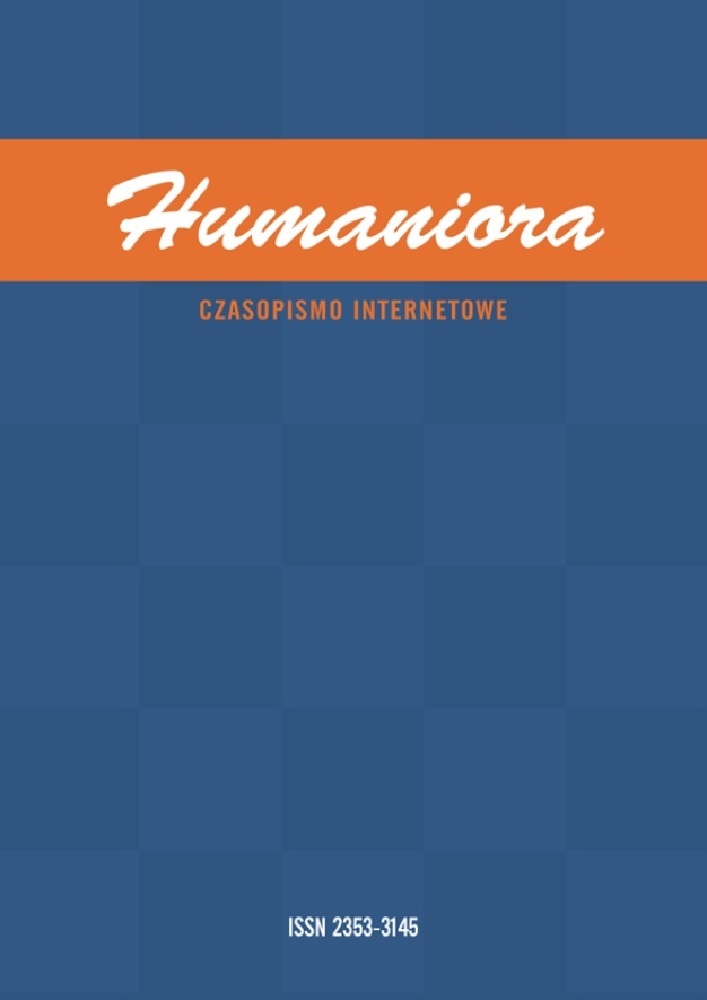Abstract
Contemporary personalism was born out of a certain anthropological disagreement with certain concepts that arose on the basis of naturalism and scientism in the nineteenth and twentieth centuries. However, as practice shows, personalism has not achieved spectacular “success” in the world of philosophy in the form of neither clear external criticism from opponents (be it from the Frankfurt School or representatives of postmodernists), nor internal criticism within the framework of discussions within personalism itself. And yet it is difficult to deny the representatives of this trend a clear contribution to the development of such concepts and terms as: value, person (as a corporeal and spiritual being with social orientation), common good, commitment. The aim of this article is to try to answer the question why criticism within personalism could result in a certain exposure of views “outside” the world of philosophy.
References
Allais L., Manifest Reality: Kant’s Idealism and his Realism, Oxford University Press 20015.
Bartnik Cz., Personalizm, KUL, Lublin 2008.
Chmielecki P., Recenzje naukowe – błędy, pułapki i postulaty, „Przegląd Pedagogiczny” 2019, no. 1.
Crosby J.F., Zarys filozofii osoby, transl. B. Majczyna, WAM, Kraków 2007.
Ivison D., Locke, liberalism and empire, in: The Philosophy of John Locke, ed. P.R. Anstey, Routledge 2003.
Jasiński K., Buberowska krytyka „Boga filozofów, “Nurt SVD” 2014, no. 2.
Kenny A., Philosophy in the Modern World: A New History of Western Philosophy, Oxford University Press 2007.
Krzysztofiak W., Analiza opozycji idealizm-realizm, „Filozofia Nauki” 1996, no. 1.
Idealism, Relativism, and Realism: New Essays on Objectivity Beyond the Analytic-Continental Divide, ed. Livingston P.M., De Gruyter 2020.
Loftus J.W., Christianity in the Light of Science: Critically Examining the World’s Largest Religion, Prometheus Books 2016.
Lunn-Rockliffe S., Early Christian Political Philosophy, in: The Oxford Handbook of the History of Political Philosophy, ed. G. Klosko, Oxford University Press 2011. DOI: https://doi.org/10.1093/oxfordhb/9780199238804.003.0009
Marcel G., The Philosophy of Existentialism, transl. Manya Harari, Citadel Press 2013.
Maritain J., Man and the State, The University of Chicago Press 1966.
Maritain J., Mounier E., Correspondance Maritain-Mounier, Desclée De Brouwer 2016.
Mounier E., Personalism, University of Notre Dame Press 1989, ebook. DOI: https://doi.org/10.2307/j.ctvpg83rq
Nozick R., Anarchy, State and Utopia, Wiley-Blackwell 2001.
Rawls J., A Theory of Justice, Rev Sub 1999. DOI: https://doi.org/10.4159/9780674042582
Rorty R., An Ethics for Today: Finding Common Ground Between Philosophy and Religion, Columbia University Press 2010.
Rorty R., Philosophy as Cultural Politics: Philosophical Papers, Cambridge University Press 2007. DOI: https://doi.org/10.1017/CBO9780511812835
Simpson L.S., Hermeneutics as Critique: Science, Politics, Race, and Culture, Columbia University Press 2021. DOI: https://doi.org/10.7312/simp19684
Terzi P., Rediscovering Leon Brunschvicg’s Critical Idealism: Philosophy, History and Science in the Third Republic, Bloomsbury Academic 2022. DOI: https://doi.org/10.5040/9781350171701
Vanier J., Becoming human, Paulist Press 2008.
Weaver D.F., The acting person and Christian moral life, Georgetown University Press 2011.
License

This work is licensed under a Creative Commons Attribution-NoDerivatives 4.0 International License.
Czasopismo oraz wszystkie zamieszczone w nim materiały są powszechnie dostępne i mogą być wykorzystywane do celów naukowych, edukacyjnych, poznawczych i niekomercyjnych bez konieczności uzyskiwania każdorazowej zgody autorów i redakcji. Nadesłanie artykułu do publikacji traktowane jest jako zgoda autora na udostępnienie swojej pracy i informacji w niej zawartych do powyżej wymienionych celów. W takich przypadkach należy jedynie wskazać źródło, z którego zaczerpnięte zostały informacje. Pobieranie opłat za dostęp do materiałów zawartych w czasopiśmie lub ograniczanie do niego dostępu jest zabronione.
Przesyłane do redakcji teksty muszą stanowić oryginalne prace, uprzednio nigdzie niepublikowane ani nie przedkładane innym redakcjom lub wydawcom. Autorzy nadsyłanych artykułów ponoszą odpowiedzialność za uzyskanie zezwoleń na publikowanie materiałów, do których prawa autorskie są w posiadaniu osób trzecich. Publikacja materiałów chronionych prawem autorskim jest możliwa pod warunkiem uprzedniego dostarczenia przez autora do redakcji pisemnej zgody właściciela praw autorskich.





